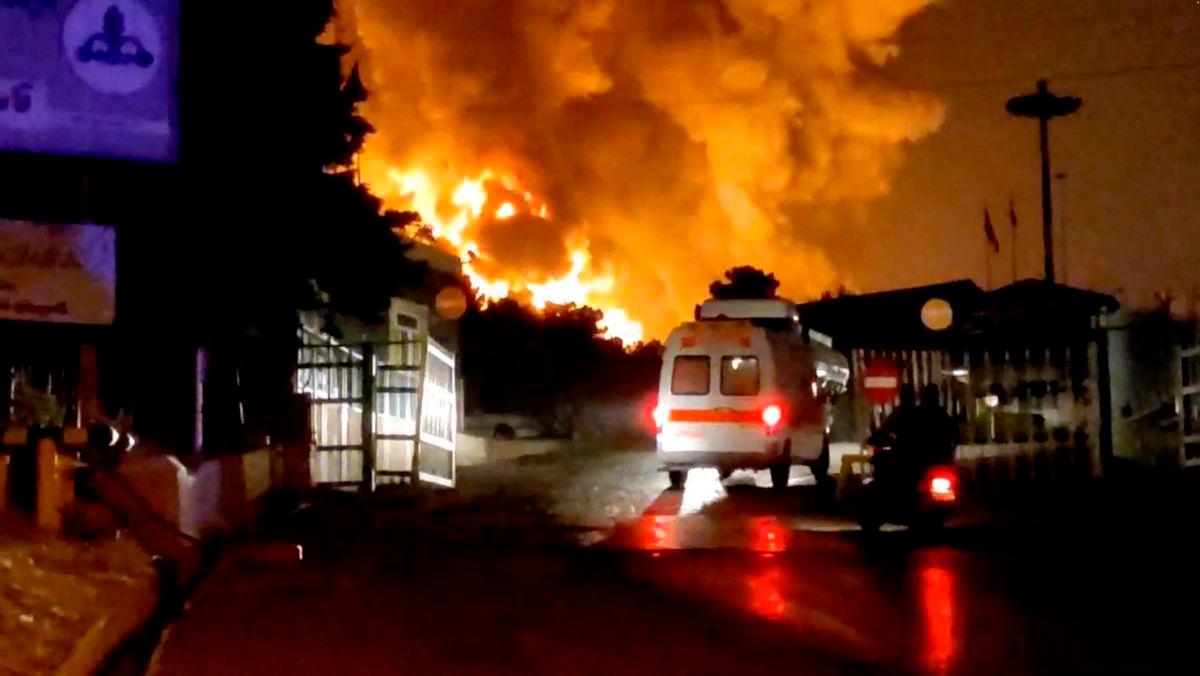TEL AVIV: Israel and Iran launched fresh attacks on each other overnight into Sunday, as U.S. President Donald Trump said the conflict could be easily ended while warning Tehran not to strike any U.S. targets.
Israeli rescue teams combed through the rubble of residential buildings destroyed in strikes, using flashlights and sniffer dogs to look for survivors after at least seven people were killed, including children, authorities said.
Tehran has called off nuclear talks that Washington had said were the only way to halt Israel's bombing, while Prime Minister Benjamin Netanyahu said the attacks by Israel so far were nothing compared with what Iran would see in the coming days.
“If we are attacked in any way, shape or form by Iran, the full strength and might of the U.S. Armed Forces will come down on you at levels never seen before,“ Trump said in a message on Truth Social. “However, we can easily get a deal done between Iran and Israel, and end this bloody conflict.”
Trump gave no details of any possible deal.
Iran has said 78 people were killed there on the first day of Israel's campaign on Friday, and scores more on the second, including 60 when a missile brought down a 14-storey apartment block in Tehran, where 29 of the dead were children.
The Shahran oil depot in Tehran was targeted in an Israeli attack, Iran said, but added the situation was under control. A fire had erupted after an Israeli attack on an oil refinery near the capital while Israeli strikes also targeted Iran's defence ministry building, causing minor damage, the semi-official Tasnim news agency said on Sunday.
In Israel, the latest wave of Iranian attacks began shortly after 11 p.m. on Saturday (2000 GMT), when air raid sirens blared in Jerusalem and Haifa, sending around a million people into bomb shelters.
Around 2:30 a.m. local time (2330 GMT Saturday), the Israeli military warned of another incoming missile barrage and urged residents to seek shelter. Explosions echoed through Tel Aviv and Jerusalem as missiles streaked across the skies as interceptor rockets were launched in response. The military lifted its shelter-in-place advisory nearly an hour after issuing the warning.
Yemen's Iran-aligned Houthis said on Sunday that they targeted central Israel's Jaffa with several ballistic missiles in the last 24 hours, the first time an ally of Iran has joined the fray.
Israel's ambulance service said at least seven people were killed overnight, including a 10-year-old boy, a young girl and a woman in her 20s, and more than 140 injured in multiple attacks.
Israeli media said at least 35 people were missing after a strike hit Bat Yam, a city south of Tel Aviv. A spokesperson for the emergency services said a missile hit an 8-storey building there and while many people were rescued, there were fatalities.
It was unclear how many buildings were hit overnight.
So far, at least 10 people in Israel have been killed and over 300 others injured since Iran launched its retaliatory attacks on Friday.
A round of U.S.-Iran nuclear talks that was due to be held in Oman on Sunday was cancelled, with Iranian Foreign Minister Abbas Araqchi saying the discussions could not take place while Iran was being subjected to Israel’s “barbarous” attacks.
Gas field attack
In the first apparent attack to hit Iran's energy infrastructure, Tasnim news agency said Iran partially suspended production at South Pars, the world's biggest gas field, after an Israeli strike caused a fire there on Saturday.
The South Pars field, offshore in Iran's southern Bushehr province, is the source of most of the gas produced in Iran.
Fears about potential disruption to the region's oil exports had already driven up oil prices 9% on Friday even though Israel spared Iran's oil and gas on the first day of its attacks.
An Iranian general, Esmail Kosari, said on Saturday that Tehran was reviewing whether to close the Strait of Hormuz controlling access to the Gulf for tankers.
With Israel saying its operation could last weeks, and Netanyahu urging Iran's people to rise up against their Islamic clerical rulers, fears have grown of a regional conflagration dragging in outside powers.
Tehran has warned Israel's allies that their military bases in the region would come under fire too if they helped shoot down Iranian missiles.
However, 20 months of war in Gaza and a conflict in Lebanon last year have decimated Tehran's strongest regional proxies, Hamas in Gaza and Hezbollah in Lebanon, reducing its options for retaliation.
Israel sees Iran's nuclear programme as a threat to its existence, and said the bombardment was designed to avert the last steps to production of a nuclear weapon.
Tehran insists the programme is entirely civilian and that it does not seek an atomic bomb. The U.N. nuclear watchdog, however, reported Iran this week as violating obligations under the global non-proliferation treaty.









